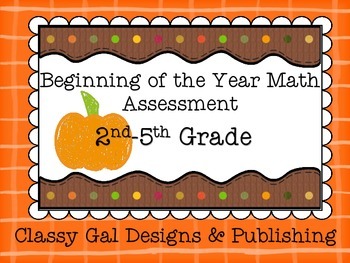Special education teacher's have a special task at the beginning of the school year--developing a program to meet the needs of each student. This requires an understanding of a child's current strengths and weaknesses. Of course, a description of "present levels of performance" is already in the IEP document. However, have you noticed that at the beginning of the year, the students aren't usually quite at the "present levels" they were when they left school in June?
At the beginning of the new school year, it is important to gather new "baseline data"!
Baseline data can be taken from a variety of places. Baseline data in the IEP could come from standardized tests, or statewide / school-wide testing. It is important to remember that often children with learning or attention difficulties do not perform well on standardized test. This is a snapshot of how the child was performing on that day, given those circumstances. (Oh and don't forget to factor in the possibility of test anxiety, the length of the test, the child's ability to attend to task for that length of time, the skill level of the standardized test and so on...the results of this standardized test may not provide what you want!
Classroom based assessments may be your best bet for gathering genuine baseline data that truly informs your instruction! You can control the content, length, testing times, and take your time to jot down behavioral and developmental observations. After administering classroom based assessments and making pertinent observations, NOW you have realistic baseline data and are ready to develop your program!
There are many classroom based assessments that can be used. Particularly in math I find that the length & scope of many assessments is a deterrent in gathering what accurate baseline data. I developed an assessment that can be given in whole or in part and has a skills checklist that allows the teacher to track the skills and areas assessed. It is designed for special education students from grades 2-5 & covers basic areas of mathematics.
Kind Regards,





I agree that it is so important for teachers to give pre-assessment or baseline tests, so starting points and growth can be determined. Your product covers a lot of different skills. Nice work!
ReplyDeleteAngela
Sugar Cube Learning